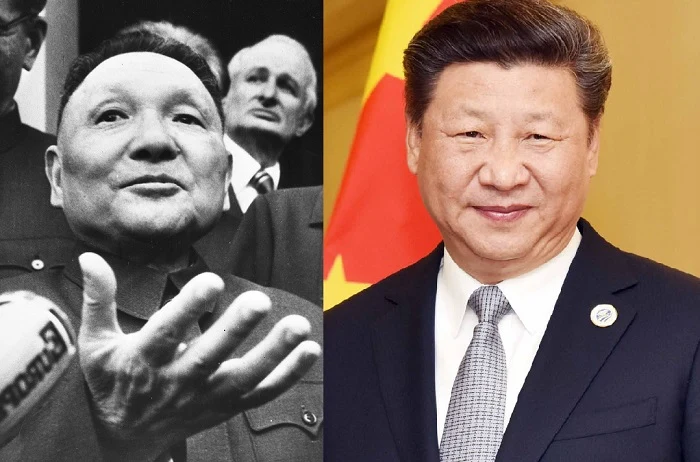People’s Daily, the authentic voice of the Communist Party of China (CPC), has made a sensational omission. In a writeup on a critically important Party conclave, which concluded last month, it did not make any reference to Xi Jinping, China’s omnipresent political giant, who doubles as CPC’s General Secretary and the President of the People’s Republic of China (PRC).
The absence of any reference to Xi, who starred at the Sixth Plenary Session of the 19th Central Committee of the CPC in November, has triggered an avalanche of speculations.
That tongues among the political elites of Beijing are wagging is not surprising. There was more than one reason for the rumour mill to get rolling. Apart from marginalising Xi, the article heaps praise on Deng Xiaoping—the architect of China’s political reforms. Xi kept Deng's formidable legacy, of powering China’s economic rise through fundamental market reforms in the shade, though he never formally repudiated it. Instead, Mao Ze Dong’s iron-fisted rule, and his personality cult, with caveats, was lionised, as part of a New Era scripted by Xi. The Chinese President visualises the “new era” reaching a new point of inflection in 2049, when, he envisages that the PRC would become the foremost power in the world in all spheres of human endeavour.
The People’s Daily article has been written by Qu Qingshan, president of the Institute of Party History and Literature of the Central Committee of the Communist Party. Surprisingly he has a reputation of being a Xi Jinping loyalist.
What is the article about?
The commentary is full of praise for Deng, who appeared on the political scene after the death of Mao in 1976. It was also a time when the entire China was traumatised by Mao’s disastrous Cultural Revolution, and confused about its future direction.
In its back-to-Deng message, the article described the reform and opening-up policy marshalled in the 1970s by the Little Helmsman—Deng’s nom de guerre—as "a great awakening of the Party".
Deng also "liberated people's thoughts from the long-running constraint of leftist dogmatism," writes Qu, president of the Institute of Party History and Literature of the Central Committee of the Communist Party, as reported by the Nikkei Asia Review.
Shifting focus away from Xi, the writeup lauds Jiang Zemin and Hu Jintao who extended Deng’s legacy, ahead of Xi’s arrival centre-stage in late 2012.
The effort to revive Deng is puzzling as Qu, on account of his status and official position, would have been part of drafting the "resolution on history," which seeks to elevate Xi’s status over Deng. This resolution was passed during the sixth plenum.
Qu’s commentary appears to presage the rumble of a bitter power struggle between the reformists who see Deng as their inspiration and Xi’s loyalists supporting the President’s unique brand of digital authoritarianism.
Unsurprisingly, Qu’s line was swiftly slammed in another follow-up article which also appeared in the People’s Daily. An article written by Jiang Jinquan, director of the Policy Research Office of the Party Central Committee showers fulsome praise on Xi's policies. Jiang’s article studiously ignores Deng Xiaoping, Jiang Zemin and Hu Jintao. Mao ‘s name is mentioned twice, while there are six references to Xi, as reported by Nikkei.
It is now apparent that ideological war within the CPC between Deng-Jiang-Hu followers and Mao-Xi disciples has begun to rage. It is likely to culminate at next year’s 20th Party Congress, when a new line of leadership for the next five years will be decided.
Also Read: Key meeting of the Communist Party of China set to equate strongman Xi Jinping with Mao and Deng



















